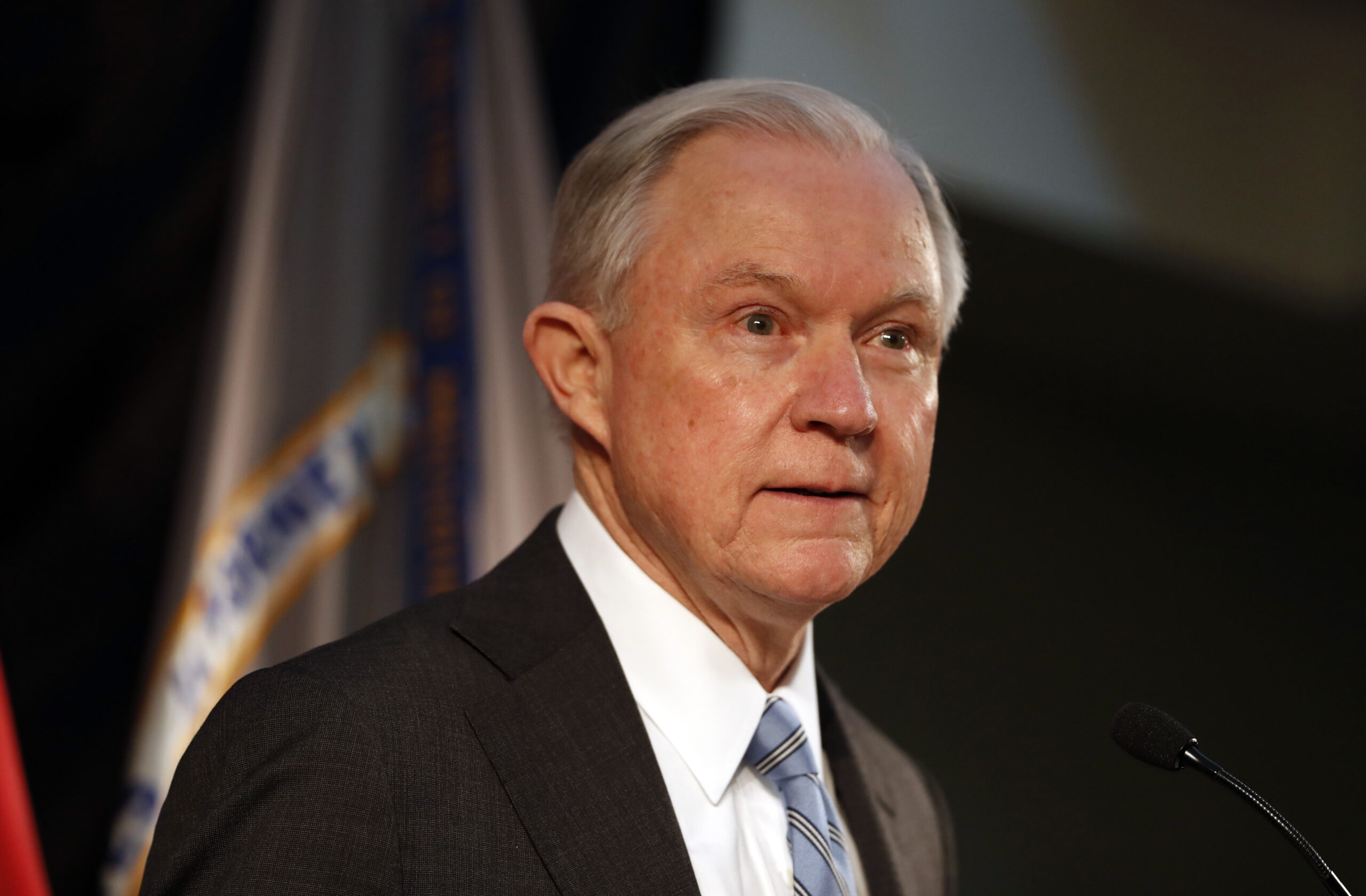A new report reveals that Attorney General Jeff Sessions, who fired former FBI Deputy Director Andrew McCabe last week, had been the subject of an investigation overseen by the now-terminated official involving Sessions’ alleged dishonesty during his confirmation hearing.
McCabe oversaw a federal investigation into whether Sessions was untruthful when he assured members of Congress that he had not had contacts with Russian officials during Donald Trump’s presidential campaign, according to ABC News. Although one source told the network that Sessions had been unaware of the investigation when he made the decision to fire McCabe, the attorney general’s lawyer was unwilling to confirm that.
Here’s the underlying controversy: Sessions had told lawmakers during his January 2017 confirmation hearing that he had not been in contact with individuals connected to the Russian government about the 2016 presidential election. After it came out that he had, in fact, met with Russian Ambassador Sergey Kislyak twice during the campaign, Sessions’ honesty was called into question, and he recused himself from overseeing the federal probe into Trump’s alleged collusion with the Russian government.
The news that McCabe oversaw a probe into Sessions’ conduct during that hearing has several implications. For one thing, it raises questions over whether Sessions was impartial when he decided to terminate McCabe’s employment, especially since the deputy director was only days away from receiving his full pension benefits. It is also revealing that a top official in the Trump administration was being scrutinized for potentially illegal conduct, but the American people weren’t informed of it until after the fact.
In general, Sessions’ firing of McCabe could be construed as a violation of his vow under oath to recuse himself from matters involving the Clinton Foundation.
“If it is a close call whether the Clinton Foundation matter is sufficiently connected to the Clinton campaign for purpose of understanding Sessions’ recusal, it should be deemed to be sufficiently connected. After all, that’s essentially what Sessions told Sen. Grassley,” Ryan Goodman of JustSecurity.org wrote. “Second, if the Clinton Foundation matter is deemed outside the scope of the recusal statement that Sessions made back in March last year, then his decision to fire McCabe shows that he failed to honor the promise for a broader recusal which he clearly made to the Senate in its decision to confirm him as Attorney General. The same goes for Hillary Clinton’s emails. Sen. Grassley’s questions and Sessions’ answers specifically covered any matters involving that investigation as well.”
Senate Democrats are also determined to meet with Sessions about his firing of McCabe, although they may not get the chance, according to Politico. Sen. Cory Booker, D-N.J., told the site that Sessions “either made a false statement or misled the committee. I think that that’s not a question — that’s a fact.” When it came to the report that Sessions had been under investigation for his inaccurate statements to Congress, Booker noted that “it sounds eerily familiar to what the IG’s accusing McCabe about.”
Booker’s views were echoed by Sen. Chris Coons, D-Del., who said he wanted clarification on how Sessions can reconcile his recusal from all matters involving Hillary Clinton and the email scandal with his involvement in McCabe’s firing.
“I have concerns about his respect to the scope of his recusal. I also have concerns that the president is inappropriately influencing the leadership of the Department of Justice,” Coons told Politico.
McCabe himself has argued that he was fired not because he was dishonest about a conversation he permitted between FBI officials and a journalist, but “to discredit me as a witness.”

